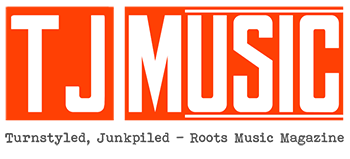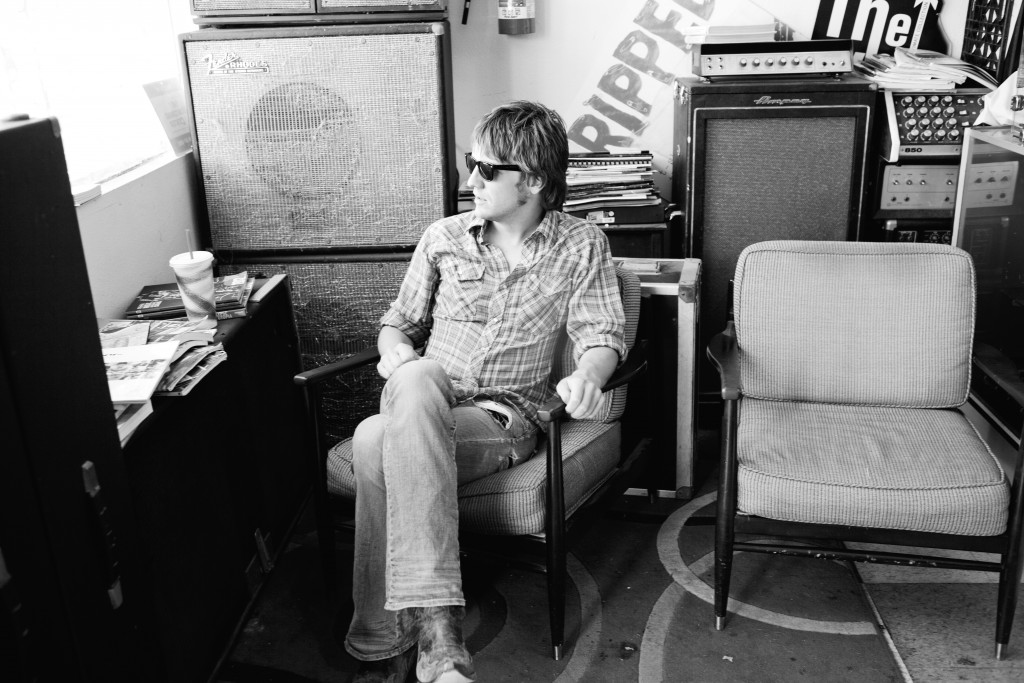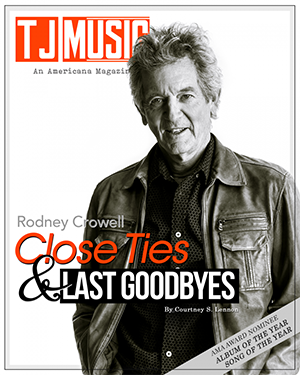Brian Whelan is a Los Angeles-based singer-songwriter who has recently added producer to his credits. He is a former member of the power-pop band, The Broken West (2004) and the Americana indie rock band, Apex Manor (2010- both bands on Merge Records). Whelan’s a multi-instrumentalist who has played with the illustrious Chuck Berry and was a longtime member of Dwight Yoakam’s band. A Seattle native who moved to San Jose, CA in 1996, Whelan came to L.A. to study music at the University of Southern California and L.A. is where he has made his home.
Whelan’s music has had comparisons to Roy Orbison, Buddy Holly with some 90’s brit pop thrown in. His first album, Decider was released in 2012, and his brand new record, Sugarland was released in March 2016 and was produced by Dwight bandmate and drummer, Mitch Marine. 2016 has brought producer credits for Whelan, as well, working with Americana artist, Rod Melancon on his just-released album, LA-14 and indie-darling, Amy Blaschke on Breaking the Blues (release date 7/1/16).
I first met Whelan about 11 or 12 years ago in the Los Angeles Americana music circles when he first started playing with local legends Randy Weeks, Mike Stinson and Ramsay Midwood at the historic, Cinema Bar in Culver City. Back then, we used to call him, “The Kid”.
On a sunny Southern California day, Whelan joined myself and Justin Smith, drummer for the band, Nocona for a few beers and a chat about the evolution of his music.
TJ-Kim: Did the song or album name “Sugarland” come first?
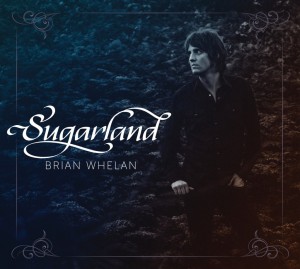 The song came first. That was the first song we did for the record and we did it at Mark Rain’s Station House Studio in Echo Park. I started the song with Mitch Marine probably in early 2013—a while ago. We went in and cut “Sugarland,” just the two of us. Shortly after Lee Pardini (bass) moved to LA and started playing with us and we became a trio. We went back in and added him to that track.
The song came first. That was the first song we did for the record and we did it at Mark Rain’s Station House Studio in Echo Park. I started the song with Mitch Marine probably in early 2013—a while ago. We went in and cut “Sugarland,” just the two of us. Shortly after Lee Pardini (bass) moved to LA and started playing with us and we became a trio. We went back in and added him to that track.
At the time, I was going to Texas a lot and Sugarland’s a suburb of Houston–Kind of a famous old town. There was a well-known prison there kind of like Angola or Folsom, and it was called Sugarland—it was a place you didn’t want to go. There was a sugar factory there and all the inmates chopped sugarcane. A long time after the prison closed there they were still a sugar mill there. Now it’s gone, replaced with McMansions that take over everything. Houston’s the 4th largest city in the nation, which means endless suburbs like Sugarland, Pearland, The Woodlands.
TJ-Kim: Sugarland has some pop jams that kind of remind me of the old pop scene in Chicago and downstate Illinois where I lived in the 80’s and 90’s.
Who are some of those artists?
TJ-Kim: Off the bat–Material Issue, Cheap Trick, Shoes, but there were so many more. There was a whole thing happening in Champaign, IL at Mabel’s nightclub, a whole movement of great pop music. Some of the songs off of your album remind me of that time. Great pop music–lots of jangly guitars that make you feel good.
You know Pop to me—I don’t even know what it means. I get the power pop comparison a lot, but to me it’s interesting because it opens up the conversation to music, which is all it should do anyway, just talking about music. To me, power pop comes from the Beatles. There’s always been pop music because there have always been pop charts. People were and are buying records and the industry wants to measure what is popular.
But for me, power pop and the way it’s discussed now comes from the Beatles and well, not the Stones. People always ask the question, “Stones versus Beatles?” and it’s just kind of like you mention either band and you can see which side they’re on—pop music or pub rock. There are very few bands for me that do both but Tom Petty and the Heartbreakers can do it. That’s what I want to do. Pop is great because it means the songs are short and they’re written well and are hooky and make you feel good like you say. But I really like the other side too, the songs that make you want to dance and drink and boogie like the Stones.
TJ-Kim: I get that, but your songs are a little more complex than a short power pop song.
Hopefully. Sometimes. But I think that the comparison happens a lot and I think it’s because those are Ross Flournoy songs. I was the band, The Broken West with Ross and that band got that a lot. He’s the bigger Big Star Fan and Teenage Fanclub fan; he’s the power pop guy. I get compared to Peter Case and a lot of stuff, but I don’t know…I don’t know that much about Big Star and Peter Case. I like stuff that’s a little older
TJ-Kim: You mean like from the 1950’s?
Yeah, a lot of stuff from the 50’s and 60’s but a lot of stuff from the 90’s and on as that’s when I became conscious of what was current and what was popular.
TJ-Kim: Who were some of your favorite artists then?
Well, Green Day…
TJ-Kim: Really? I would never have guessed that.
Yeah, I mean it kind of started with Nirvana and Pearl Jam and 90’s Seattle grunge. A lot of that …but I really liked a lot of the LA bands, like Stone Temple Pilots, a lot of northern CA stuff too, like Cake, and Sublime from Long Beach but who were really big in Norcal, and the LA band Rage Against The Machine who were also really big in northern CA. Those were the concerts I was going to. And I was listening to KOME radio, which was the modern rock station in San Jose. And so I liked a lot of that stuff. Sublime and Cake, they were kind of weird and quirky. It was kind of cool that those bands were so popular and they were like these multi-hyphenated genre kind of band where it was hard to describe. It’s like you know in an instant that it’s Cake, but it’s very hard to describe to a friend. What is it?
TJ-Kim: You also have some really roots flavored guitar heavy songs, but the song that surprised me the most was “The Bottom” because it was such a country song.
Yeah. It was even more country before…Mitch made it less country. It was a train beat before and Mitch made it more of an outlaw country song.
TJ-Kim: It was surprising to me, but it flows with the whole record.
Yeah. That was written early. Five of the first songs or maybe six—we would go in once a week and record one song. We would take one or two days and we would almost finish it. “We got it all” took like 10 days of mixing and fucking around but a lot of those songs we did in two days. “Sugarland”, “Americana”, “Number One Fan”, “Go Dancing”, “Only Thing too Good to be True is You”, and then, “The Bottom” was another one. “The Bottom” was a train beat song that was ripped from “Sitting On Top of the World”. (Sings a few bars) A country train-beat shuffle song, kind of like a faux bluegrass song and Mitch said, “That’s boring, let’s do a disco beat instead.”
TJ-Kim: I liked it. I mean like I said, I was surprised it was so country because I’ve never heard that much country in your music before.
Well, Keith Gattis is playing guitar on that, so that definitely adds to the roots-rock cred and explains a bit of why it sounds that way. Mitch is a really good producer, and it was really good for me too, because he’s really focused on the drums and the rhythm. I focused on singing, lyrics maybe attempt an overall kind of feel for it and he would take that feel and do the rhythm—kind of take it apart and not worry about guitars and vocals. He did a really good job.
Justin: I saw Mitch play with a Tejano band 5 or 6 years ago and he had totally flipped the drumbeat around. The accents were in places where they just aren’t in rock and roll. He was so fluid at it, it was like he played it everyday.
He’s a crazy talent who has had a lot of training. He’s like the James Bond assassin of drummers. Obviously, he has a real natural gift but it’s been refined. He’s trained –he’s done his ten thousand hours of practice and now can do whatever you want on the drums.
TJ-Kim: When you tour in Texas, you borrow Mike Stinson and his band.
Yep. Mark Riddell (bass) and Lance Smith (guitar).
TJ-Kim: You guys go way back, and they’re a powerhouse. It was cool to see him with those guys for the first time. They changed his music…it became so much more rock and roll. Has time or distance hindered your musical connection with Mike at all?
To me, it’s just gotten better. Every time we play music together it just gets better. I learn a lot from him, I always did. I learn so much now that we’re out on the road and just listening to him share some of his experiences. And he’s also really funny and it makes me wish I were a lot more present when I was working with him when I was 25 years old. Like a lot of 25 year olds, I had my head up my ass, so it was kind of like I wasn’t paying as much attention. Now when I’m out with him I’ve realized what a wise, talented guy he is. And so, it definitely makes me wish I had paid attention back then. I have a few memories, but they’re kind of hazy.
TJ-Kim: Does he still treat you like “The Kid”? Lots of folks used to call you “The Kid.”
Well, yeah but that’s because I’m always the youngest guy and it’s just a little bit of my character. On the tour the band was making fun of me and kept saying, “we’re going to put you on the cover of Tour Manager Magazine.” I’m a horrible tour manager. (Laughs) The logistics are barely strung together.
TJ-Kim: How did you find the band you play with now, your live band?
That switches up based on who can do it at the time. It’s rare when Mitch and Lee can play because they are gone a lot of the time. There are a couple of guys who have been playing drums –I started using Luke Adams, I guy I really like, he went to University of North Texas in Denton and he’s played with all kinds of people…
TJ-Kim: How’d you find him, through friends?
I met him a long time ago when I was working with Eugene Edwards and John Hokinson. There was a band we used to do shows with called, Fifteen Grand and he was the drummer and he sang harmonies. I hadn’t seen him for many years and then when Mitch couldn’t do a gig one time he suggested I call Luke who he thought was really good and he was right. He has a lot of things in common with Mitch– they are similar stylistically and also they both went to University of North Texas which has this famous drum and percussion program It’s a great music school and all these drummers come out of there and end up moving to LA and getting all the hot-shot gigs. Jason Sutter, Blair Sinta, –they all live in the valley and work for Melissa Ethridge or whoevers hiring hot shot drummers.
There’s another guy named George Sluppick who has done some shows with me and who was in Chris Robinson Brotherhood. Eric Curtis sometimes plays bass. I met him at USC and have known him for 15 years…a good player and LA native, which is rare. Sometimes Lee would play keyboards, but now he’s playing with Dawes and he’s out on the road with them, so he’s rarely available. I usually introduce Lee with — “Live from LAX’ because he’s typically getting off a plane. Brian Simpson plays guitar. He works at the Piano Bar (in Los Angeles) and plays with Austin Hanks. I’ve known him for a while and when he told me he was interested in playing with me, that was that.
TJ-Kim: You recorded your first release Decider while you were still touring with Dwight, I believe. Did Sugarland have anything to do with your decision to break off from Dwight’s band and head out solo?
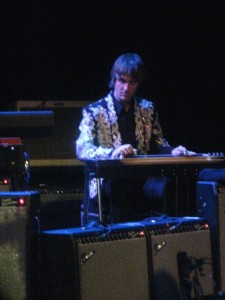 Actually, the record was already done when I left.
Actually, the record was already done when I left.
TJ-Kim: What was Dwight’s reaction to your leaving? I know he came to a show you did at The Grand Ole Echo in Los Angeles, just after you left his band.
You know when I told him I was leaving, he was a little surprised, but he was real nice about it. He was very supportive and said, “You’re going to have a long road ahead of you.” And, well you know, it’s true. Smart guy.
And, that was an interesting show because that was the band that he played with– Eugene Edwards, Jonathan Clark and Mitch. I think that’s the only time I’ve played my music with that band. So, it was kind of cool when he came to that show because we didn’t talk about my career that much and it spoke volumes when he came to that show.
Justin: Is it true you learned pedal steel on the fly for Dwight?
Yeah, kind of. He asked me to learn. And I played guitar so it wasn’t a total stretch. But, I think of that instrument as the way I think of a piano more than a guitar. It’s real ‘mathy’ the way a piano is. Guitar is a little bit more of a feeling. Radiohead has that song, “Anyone Can Play Guitar”, right? With a guitar you can feel your way and even if you aren’t technically savvy, it can still work out for you.
TJ-Kim: Are you one of those guys who at home walk around with your guitar strapped to you, as if it’s a third arm–like for example, Dave Gleason or Mike Stinson?
Ha! No. But hey, that’s why Dave Gleason plays guitar the way he does and Mike Stinson writes songs the way he does, so maybe I should do that, but I don’t.
Justin: What was like working with Herb Pedersen?
It was great and he’s awesome. Almost all the musicians on the record came through Mitch; Herb, Gabe Witcher, Rami Jaffe, Keith Gattis and Greg Camp from Smashmouth. Lee Pardini, the bass player came through me and the other writers– Phoebe Bridgers and Ross Flournoy—came through me.
Greg Camp did all the breakbeats on “We Got It All”. I told Mitch I wanted some 90’s like production on the breakbeats and he said, “well why don’t we get Greg Camp because he did that on all the Smashmouth hits”. I was lucky to have Mitch bring all these guys in. Herb’s contribution to the song is unexpected. I asked him to play the banjo sort of ‘Zepplin-esque’on the tune and he played the hell out of it.
TJ-Kim: Is there a thread that runs through your album and if so, what pulls it together?
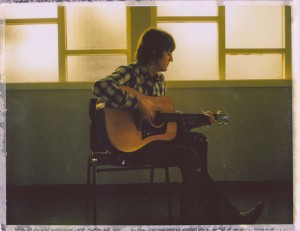 That’s a very good question. I don’t have a great answer for that. A lot of it was written and recorded together, with the same group of people, and I feel like I’m lucky to even be able to say that. It was all written and pieced together for probably just under a year and after that it was all just up to me and Mark to mix it and tweak it, but it was done fairly quickly.
That’s a very good question. I don’t have a great answer for that. A lot of it was written and recorded together, with the same group of people, and I feel like I’m lucky to even be able to say that. It was all written and pieced together for probably just under a year and after that it was all just up to me and Mark to mix it and tweak it, but it was done fairly quickly.
Mitch and I were on the road about 200 days a year so the other 165 days we worked on the album. Mitch’s influence is certainly a musical thread that runs through it and I thought the co-writing was kind of interesting. Ross wrote some of the songs without me there and I thought that they captured a part of me in a way. Phoebe and Dave Meshell (The Neighborhood Bullys) and Ross, they were all really good co-writers because we were writing for me—I was going to sing them—so they were able to really able to channel me in a way. I don’t know if everyone knew that was happening, but it did end up happening that way. I mean “Suckerpunch” is me and Phoebe sitting at a table with guitars and staring at each other and trying to think of something to write.
TJ-Kim: Is your songwriting style is a conscious effort or subconscious?
You know it depends. I’ve written with people before where you’re sending a demo back and forth and putting it together like Legos.
It’s really cool to just sit at a table and see what happens and not everyone can do that. I certainly can’t do that with just anyone. But I did it with Ross on “Let’s Go Dancing” and you know writing “Suckerpunch” with Phoebe was pretty cool. I thought I was writing a song for her to sing.
That’s the funny thing about that song to me, she’s 20 years old, and she’s a young woman. She’s a pretty impressive young woman, but she’s young and a lot of her material is intense and dramatic. That’s how my mind worked was when I was 20 where life was much more melodramatic than it is now…. so I was kind of like, I’ve got to write a song for Phoebe, so I’m going to write the saddest fucking thing I can think of. So I wrote about myself and something I hated about myself. I was like I’m writing a song for phoebe to sing this is going to be great, and then I realized, wait, this song is for me to sing. So, I thought that was an interesting process.
I just think the world of Phoebe. She works her ass off, she gets out there, and she’s really talented. And she just came over, sat down and helped write the song…it was just a gift.
Justin: That’s a really great tune, that’s one of my favorites on the album.
Thank you, I’ve been getting that a lot. Which informs the answer I just gave you. Phoebe’s talented. She’s got a lot of good songs in there and she just fucking gave me one.
TJ-Kim: Speaking of youth, I remember asking you years ago, “what are you doing hanging out with all of these old folks?” And your response was, “I’m learning.” Which I thought that was a fantastic answer.
Thank you. A lot of these great guys I played with and learned from moved away to Texas. You know Jesse Harris, Mike, and Randy Weeks, Ramsay Midwood All these guys left town. Josh Grange went to Nashville. Back then, I had to fucking beg to play with any of these guys. And the first time I got the chance to play it was some horrible gig that all the other dudes didn’t want to do, so I weaseled my way into playing with Randy and then they were like, ‘holy shit, he can play’.
TJ-Kim: You’re building yourself as a producer. Who are some of the artists you are working with?
I guess my first taste of producing was with Ross and The Broken West and then Apex Manor. I was billed co-producer for Apex Manor and the Broken West Records were produced by the band. On Apex Manor, I learned a lot about arranging and that’s pretty much what I do as a producer. The albums I’ve produced are Rod Melancon’s latest, LA 14 and Amy Blaschke’s Breaking the Blues.
TJ-Kim: Do you want to do more production work?
Absolutely. Yes. With Rod and Amy in different ways, I’ve learned a lot. And it’s because they asked me to produce them. No one had ever asked before. With Amy, it kind of came out of nowhere. We’re old friends and she’s become friends with my girlfriend. So, we’re at dinner, on a double date, and during the dinner while talking about her record, she said, “You know, I think I’d really like you to produce.” It had never crossed my mind before that. So, there’s another gift. They ask you to do it and you can kind of learn about the process, learn about yourself. It’s been very cool.
TJ-Kim: What are some of your next projects? Are you going on tour? Are you making a new record?
Yeah. The release date of my record was March 25th, so I’m on the hook for 6 months of touring or whatever I can finagle together. I’m going to tour this year until it gets too cold to tour east of here and then by then, hopefully I will have something lined up to produce or record.
Maybe I’ll do a record of my own. When it gets cold, I imagine I will retreat to the studio. But for now, it’s getting warmer every day, the days are getting longer and I’m going to tour. The West Coast, Nashville, and Texas again and maybe some new places like Kansas City and Tulsa, cities I haven’t’ hit yet.
brianwhelanmusic.com | fb | buy | shows
Side Note: Whelan opened for Dwight Yoakam on June 5th in Phoenix, AZ
Other Tour Dates:
June 15 – Under the Volcano – Houston, TX
June 18 – Opening for High Plains Jamboree – KNON show at Sons of Hermann Hall – Dallas, TX
June 19 – Guthrie on the Green – Tulsa, OK
June 21 – Raven Tower (bar) – Houston, TX
Latest posts by TJ Staff (see all)
- Song premier: Brooke Graham – “Merryachi Christmas” - October 31, 2022
- Sean Devine’s Here For It All - September 7, 2021
- Video Premier: “No One Gets Pulled Over on Christmas Eve” (The Smoking Flowers) and “Santa Claus is Dead” (Dee Oh Gee) - December 22, 2020
